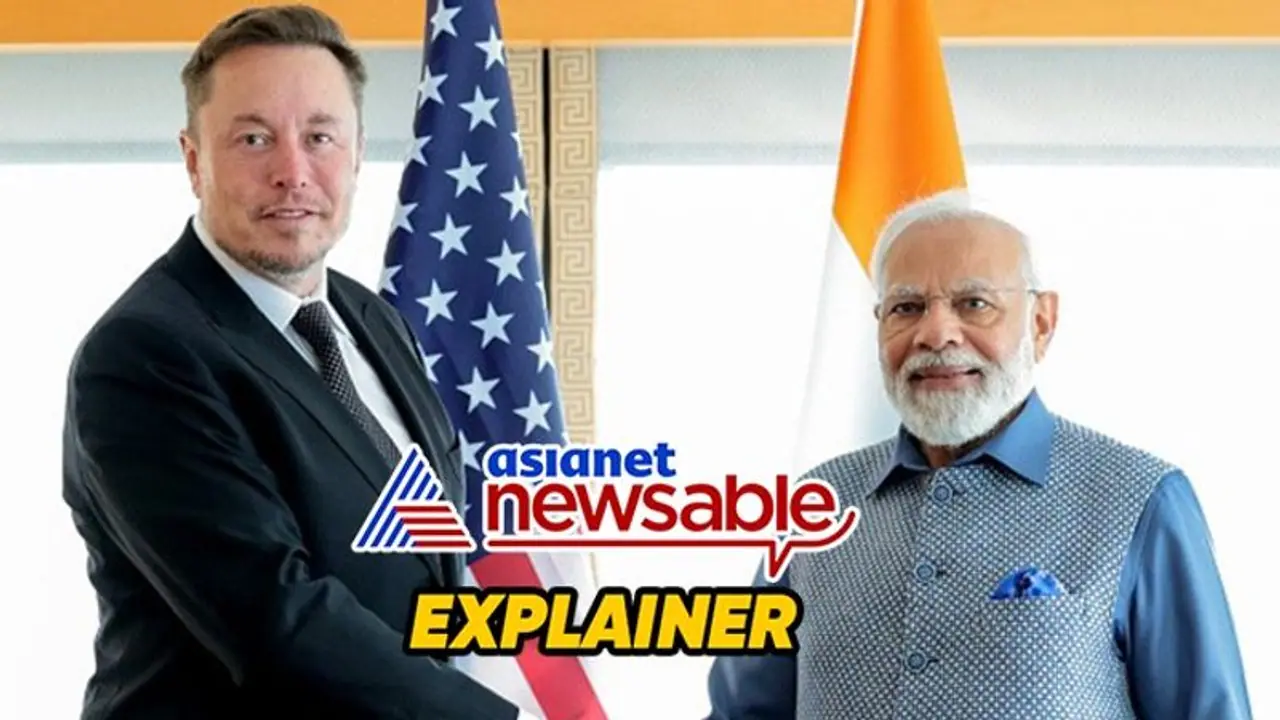Elon Musk's confirmed visit to India to meet Prime Minister Modi sparks anticipation of significant investments in the EV sector, potentially transforming India into a major market and manufacturing hub for Tesla.
Elon Musk, CEO of Tesla and SpaceX, on Wednesday confirmed his upcoming visit to India, where he will meet with Prime Minister Narendra Modi. During this visit, Musk intends to announce significant investments in the electric vehicle (EV) sector. Industry experts anticipate that India could emerge as a substantial market for Musk, with potential revenues reaching $3.6 billion by 2030.

Also read: 'Looking forward to meeting PM Modi': Tesla CEO Elon Musk CONFIRMS India visit
The news of Musk's visit has delighted Tesla enthusiasts across India, particularly after Prime Minister Modi's efforts to persuade Musk to consider India as the next destination for establishing a Tesla manufacturing plant and a global supply chain system.
Experts have noted a considerable amount of historical context and speculation surrounding Elon Musk's intentions to enter the Indian market.
"The list of possible announcements includes India providing duty cuts on imported Tesla cars, the company establishing an official sales and service presence in the country, followed by possible manufacturing facilities further out," senior analyst Soumen Mandal from Counterpoint Research was quoted as saying by IANS.
In India, the current penetration of electric vehicles (EVs) stands at 2.3%, a figure expected to surge to 28% by the year 2023. Industry projections suggest that electric cars priced at around $25,000 (equivalent to Rs 20 lakh and above) will capture a minimum of 15% market share by 2030, based on the latest data available.
"India could grow into a considerable market for Tesla in the long term. As cars effectively become supercomputers on wheels, we anticipate Tesla could achieve $3.6 billion in revenue from car sales in India alone by 2030," Mandal told the news agency.
Furthermore, experts highlight India's potential to emerge as a manufacturing hub for producing cars in the sub-$25,000 price range, with prospects for exporting to developing and underdeveloped nations. In addition to manufacturing, Tesla's inclination towards establishing its supercharger network in India could significantly bolster the growth of the country's EV charging infrastructure.
This move may mirror the standardization witnessed in the United States, where automakers have adopted the North American Charging Standard (NACS) charging standards. Also referred to as the Tesla charging standard, NACS represents an EV charging connector system developed by Tesla.
Since 2021, all Tesla vehicles in the US have utilized this standard, and as of November 2022, it has been opened for use by other EV automakers.
Also read: Is Tesla coming to India? Here's what CEO Elon Musk said
Liz Lee, Associate Director at Counterpoint Research, suggests that the electric vehicle (EV) landscape in the country is poised for substantial growth.
"Government initiatives such as the production-linked incentive (PLI) scheme for Advanced Chemistry Cells (ACC) and the recent reduction in import duties on EVs under $35,000 to 15 per cent are game changers," Lee was quoted as saying.
Car sales in India are projected to experience a compound annual growth rate (CAGR) of 6.3% between 2024 and 2030, up from 4.4 million units recorded last year.
Meanwhile, the electric vehicle (EV) sector is expected to witness a staggering CAGR of 52% during the same period, marking a significant "natural progression" for India, as highlighted by Elon Musk.
In 2024 alone, EV sales in India are forecasted to surge by 66%, driven by increasing consumer interest, government initiatives, and infrastructure development.
Industry experts suggest that Tesla's entry into the Indian market could further catalyze the establishment of supply chain ecosystems, ultimately leading to the localization of automotive components manufacturing.
This accelerating pace underscores India's journey to becoming a major player in the global EV market.
